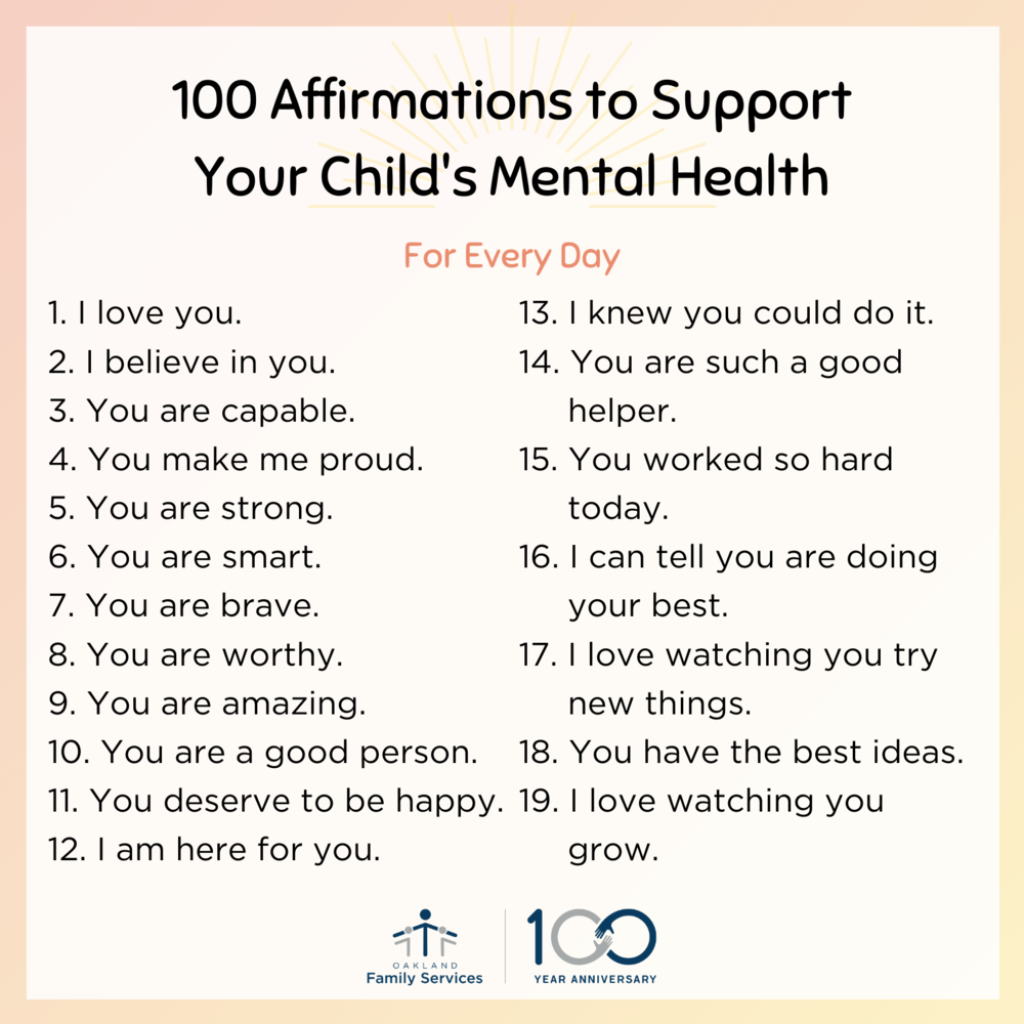Unlocking The Power Of Mental Health For 3-Year-Olds: Empowering A Brighter Future
Mental Health in 3-Year-Olds: Understanding and Supporting Their Emotional Well-being
Greetings, readers! Today, we delve into an important topic that concerns the mental health of 3-year-olds. As parents and caregivers, it is crucial for us to understand and support the emotional well-being of young children. In this article, we will explore the various aspects of mental health in 3-year-olds, providing valuable insights and guidance to ensure their optimal development and happiness.
Introduction
1. Early years are critical for shaping a child’s mental health. During their third year, children undergo significant emotional and cognitive development, laying the foundation for their future well-being.
1 Picture Gallery: Unlocking The Power Of Mental Health For 3-Year-Olds: Empowering A Brighter Future

2. Understanding the emotional needs of 3-year-olds is essential for identifying and addressing potential mental health challenges early on.
Image Source: fbsbx.com
3. By promoting positive mental health in early childhood, we can foster resilience, emotional intelligence, and overall happiness in young children.
4. This article aims to provide a comprehensive overview of mental health in 3-year-olds, covering important aspects such as what it entails, who it affects, when to seek help, where to find support, why it is crucial, and how to promote it effectively.
5. Let’s explore each of these aspects in detail to gain a better understanding of mental health in 3-year-olds.
What is Mental Health in 3-Year-Olds?

Image Source: squarespace-cdn.com
1. Mental health in 3-year-olds refers to their emotional and psychological well-being. It encompasses their ability to manage emotions, form relationships, and develop a positive sense of self.
2. Ensuring good mental health in this crucial stage of development sets the stage for a lifetime of well-being and resilience.
3. Factors that contribute to mental health in 3-year-olds include genetics, environment, and experiences during early childhood.
4. It is important to note that mental health challenges can manifest differently in young children compared to adults, making it essential to be aware of age-appropriate signs and symptoms.
5. Understanding the unique needs of 3-year-olds is crucial in providing the necessary support for their mental health.
Who Does Mental Health in 3-Year-Olds Affect?
1. Mental health in 3-year-olds can affect any child, regardless of their background or circumstances.
2. Factors such as genetics, family dynamics, and exposure to stressors can influence a child’s mental health during this critical stage.
3. It is important for parents, caregivers, and educators to be attentive to children’s emotional well-being and provide support when needed.
4. Identifying and addressing mental health concerns early on can prevent potential long-term effects on a child’s development.
5. Mental health in 3-year-olds is a topic that concerns everyone involved in a child’s life, as it directly impacts their overall well-being.
When to Seek Help for Mental Health in 3-Year-Olds?
1. Knowing when to seek help for mental health concerns in 3-year-olds is essential for their well-being.
2. If you notice persistent changes in your child’s behavior, extreme mood swings, difficulty with social interactions, or regression in developmental milestones, it may be time to seek professional guidance.
3. Consulting with a pediatrician or mental health professional can provide valuable insights and support in addressing any concerns you may have.
4. Early intervention is key in managing and improving a child’s mental health.
5. Trust your instincts as a parent or caregiver, and seek help if you have any concerns about your child’s emotional well-being.
Where to Find Support for Mental Health in 3-Year-Olds?
1. Various resources and support systems are available to help you navigate the complexities of mental health in 3-year-olds.
2. Local community organizations, pediatricians, and mental health professionals can offer guidance and support.
3. Parenting groups, online forums, and educational materials can provide valuable insights on promoting good mental health in young children.
4. Establishing a strong support network can make a significant difference in your ability to support your child’s mental health.
5. Remember, you are not alone, and reaching out for support is a sign of strength.
Why is Mental Health in 3-Year-Olds Crucial?
1. Fostering good mental health in 3-year-olds is crucial for their overall well-being and future success.
2. Positive mental health sets the stage for healthy emotional development, social relationships, and cognitive growth.
3. It provides a strong foundation for resilience and the ability to cope with challenges later in life.
4. Investing in mental health in early childhood can have lifelong benefits, shaping a child’s trajectory towards a fulfilling and emotionally stable adulthood.
5. Prioritizing mental health in 3-year-olds is not only important for the individual child but also for building a healthier society at large.
How to Promote Mental Health in 3-Year-Olds?
1. Promoting mental health in 3-year-olds requires a multi-faceted approach that encompasses various aspects of their lives.
2. Nurturing a secure and loving environment, establishing consistent routines, and providing ample opportunities for play and exploration are crucial for their well-being.
3. Encouraging open communication, teaching emotional literacy, and validating their feelings are essential for fostering their emotional development.
4. Engaging in activities that promote social interaction and emotional intelligence can contribute to their overall mental health.
5. Lastly, being a positive role model and practicing self-care as a caregiver will benefit both you and your child’s mental well-being.
Advantages and Disadvantages of Mental Health in 3-Year-Olds
1. Advantages:
👍 Promotes emotional resilience and self-regulation.
👍 Enhances cognitive development and learning capabilities.
👍 Builds strong relationships and social skills.
👍 Reduces the risk of mental health challenges in later stages of life.
👍 Creates a foundation for a healthy and fulfilling adulthood.
2. Disadvantages:
👎 Can require additional time and effort from caregivers to support a child’s mental health.
👎 Challenges may arise in identifying and addressing potential mental health concerns in young children.
👎 Limited resources and support available for mental health in early childhood.
👎 Lack of awareness and understanding about the importance of mental health in 3-year-olds.
👎 Challenges in balancing the child’s needs with other responsibilities.
Frequently Asked Questions (FAQs)
1. What are some common signs of good mental health in 3-year-olds?
Good mental health in 3-year-olds is often reflected in their ability to regulate emotions, form meaningful relationships, and exhibit curiosity and joy in their daily lives.
2. Can mental health challenges in 3-year-olds be prevented?
While not all challenges can be prevented, promoting a nurturing environment, responsive caregiving, and early intervention can significantly reduce the risk of mental health difficulties.
3. How can I help my 3-year-old develop emotional intelligence?
Encouraging emotional expression, validating their feelings, and teaching them age-appropriate coping strategies are effective ways to promote emotional intelligence in 3-year-olds.
4. Is it normal for 3-year-olds to experience tantrums?
Tantrums are a normal part of a 3-year-old’s development as they learn to navigate and express their emotions. However, persistent and extreme tantrums may indicate underlying issues that require attention.
5. Can mental health in 3-year-olds impact their academic performance?
Yes, mental health challenges in 3-year-olds can affect their overall well-being, including their ability to engage in learning activities. Addressing these challenges early on can support their academic growth.
Conclusion
In conclusion, prioritizing mental health in 3-year-olds is crucial for their overall well-being and future success. By understanding what mental health in this age group entails, recognizing the signs of challenges, and seeking appropriate support, we can provide the necessary foundation for their emotional development. Let us work together to create a society that values and supports the mental health of our young children.
Final Remarks
Thank you for taking the time to read this comprehensive article on mental health in 3-year-olds. It is important to note that while the information provided here is based on extensive research and expert opinions, each child is unique, and their individual needs may vary. If you have any concerns about your child’s mental health, it is always recommended to consult with a qualified professional for personalized guidance. Together, let’s prioritize the well-being of our little ones and ensure their emotional growth and happiness.
This post topic: Holistic Living
